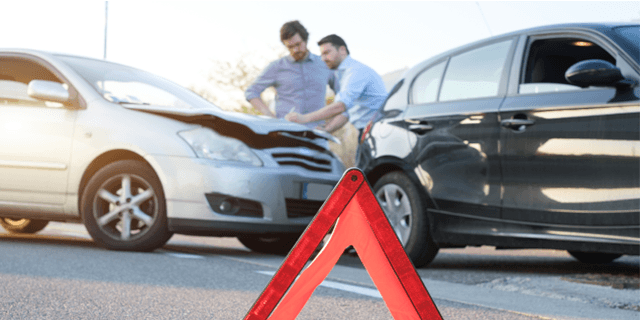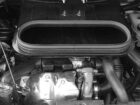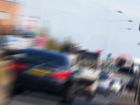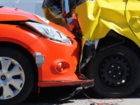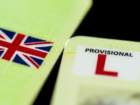Being involved in a car accident can be scary, it can also leave you shocked, disorientated and confused – which is why it’s important to know what to do. To help you stay calm and prepared, we’ve put together this explanatory guide.
What to do in a car accident
The initial moments after an accident can be a bit of a blur but it’s important to try and stay calm. You should:
- Stop the car and switch off the engine
- Keep your hazard lights on
- Check to see whether anyone is hurt and call an ambulance if needed (this includes pedestrians). If no-one is hurt (including pedestrians, passengers in your car and the other vehicle) you should still note the fact down (just in case someone says otherwise later down the line)
- If the accident is serious or the road is blocked, you should call the police
- Try not to apologise and don’t take responsibility for the accident until you’re confident you know exactly what happened
- Swap insurance details with any other motorists involved, if you don’t do this at the scene, then you must report the accident at a police station within 24 hours
- If you feel the situation is an emergency – for example if you’re on a busy road or if another driver becomes violent, you should dial 999 and ask for the appropriate emergency service.

When should I report an accident to the police?
According to the Road Traffic Act 1988, there is no legal obligation to call the police if the accident is minor and:
- No-one is hurt
- There is no damage to property
- All parties involved have swapped details, including insurance information.
You will need to contact the police if:
- The other driver refuses to give you their details (it’s an offence not to give information to anyone who might have ‘reasonable grounds’ for it)
- You think the other driver has been drinking or has taken drugs
- It becomes clear the other driver has no insurance
- The other driver flees the scene
- Anyone has been hurt
- Certain animals have been injured (horse, cattle, ass, mule, sheep, pig, goat or dog
- There has been damage to property (this includes damage to things like fences, street lamps, signs and bollards).
If you do need to call the police but it is not an emergency, you should report the incident using the non-emergency number, 101, within 24 hours.
If you were unable to leave your details at the scene, you must report the accident in person at a police station within 24 hours.
Telling your insurer you’ve been in an accident
If you’ve been in an accident, you need to let your insurance provider know – even if you don’t want to make a claim. If you don’t tell your insurer, it could invalidate your insurance policy.
If you do want to make a claim, then collecting as much information as possible can make the process smoother so it’s good to make a note of:
- The date and time of the accident
- Weather, road and traffic conditions
- Contact details of other motorists, passengers, witnesses and any police officers on the scene
- Registration numbers and the make, model and colour of any other vehicles involved
- The damage caused and if possible, photographs to help the insurer visualise the scene. If you don’t have a camera or smartphone, write a description and draw a rough diagram of where vehicles were positioned.
Aim to call your insurer as soon as possible – ideally from the scene of the accident so if they ask you any specific questions, you can find out the answers quickly. Most insurers will have a dedicated accident or claim helpline so it’s handy to keep the details in your glovebox.
You’ll be asked for your policy number (or details so they can identify you), as well as information about the other vehicles and drivers involved, including their insurance details.
What is the car insurance claims process?
Different insurers will each have slightly different claims processes but your provider will explain what needs to be done when you report an accident (it should also be set out in your policy).
You should always wait to see what your insurer says before doing anything so it’s vital to speak to them as soon as you can after an accident. If you go ahead and fix your car before they’ve accepted the claim, you might not get any compensation.
If you have comprehensive cover, you can claim for any repairs your car needs. In some cases, your insurer may want to inspect your car to see how much damage has been done. If it can be repaired, they’ll either ask you to find estimates for the repair work or ask you to use one of their approved garages.
If you’ve got third party only or third party, fire and theft cover, your insurance won’t pay out to repair your car, it will only pay for repairs to other ‘third party’ vehicles, so you’ll be expected to meet the costs of repairing your vehicle yourself.

My insurer says my car’s a write-off, what does this mean?
A write-off is a car that’s considered too expensive to fix in relation to its current market value if your insurer does decide to write-off your car, they’ll compensate you for it’s your car wasn’t too badly damaged, you could buy it back from your insurer using your compensation money.
If you wanted to do this, you should let your insurer know as soon as possible (ideally at the start of the claim). You can find out more about buying back your car in our guide to: Category S and N vehicle write-offs.
Finding the right car insurance at the right price
Car insurance isn’t just a legal requirement, it’s there to protect you and your property as well the public.
At mustard.co.uk, we understand that finding a policy to suit you and your budget can be time consuming and confusing. It’s why we’ll always give you impartial advice about your car, van or motorbike cover so you can make decisions based on facts.

